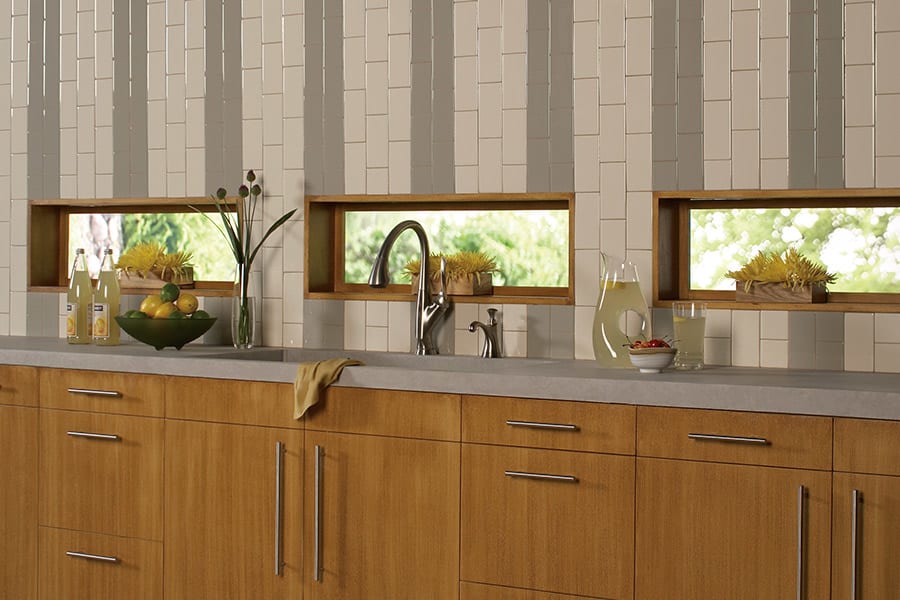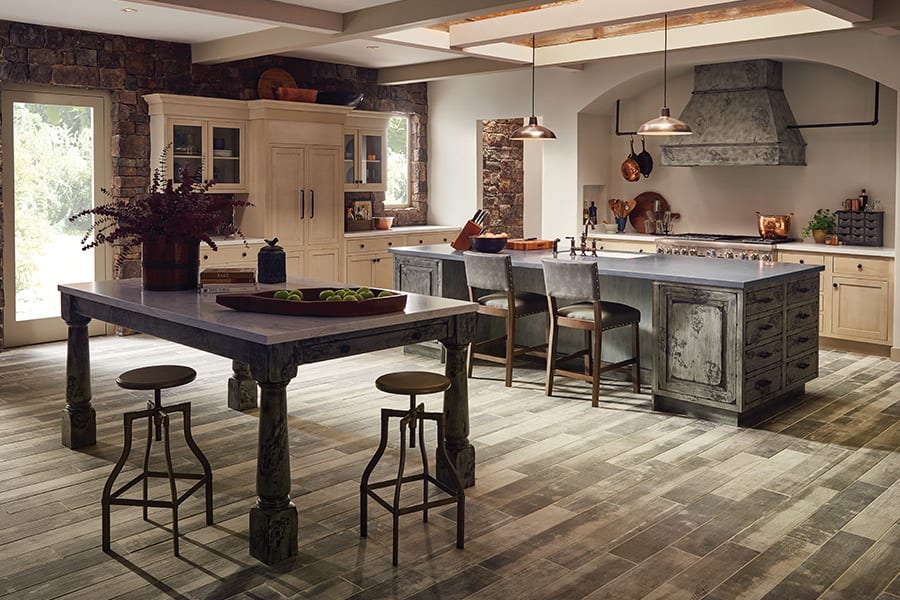Request an estimate
What you should know about tile flooring
When it comes to tile floors, one phrase comes to mind: “Form & Function.” It is a terrific design tool, especially with all the colors, patterns, designs, shapes, and sizes, all of which can be mixed and matched. It also has high functionality, being waterproof, durable, and easy to clean. You should know some necessary information, so when shopping for tile flooring in San Jose, CA, we’ll help you sort it all out.
Floor vs. wall: the difference
One of the questions we hear most often is whether you can use a floor tile on the wall and vice versa. Floor tiles are thicker and constructed to withstand foot traffic. You can use them on walls, but you shouldn’t ever use wall tiles on the floor. The boxes are marked as to whether it’s for the floor or wall, but you should also have a detailed discussion with your tile retailer about precisely how you plan to use it.
Also consider the Mohs Scale, a one to five rating system, because that will determine strength. For example, C-1 means the ceramic is only suitable for walls, while C-3 and C-4 are best for residential use. C-5 means it can be used in commercial applications.
Also consider the Mohs Scale, a one to five rating system, because that will determine strength. For example, C-1 means the ceramic is only suitable for walls, while C-3 and C-4 are best for residential use. C-5 means it can be used in commercial applications.
Consider hardness and porosity
All ceramic tiles have different levels of hardness. Some types, such as porcelain, are appropriate for high foot traffic floors in busy rooms such as the kitchen. While it is made of clay, the composition also includes sand and glass, making it heavier and denser.
The 4 X 4 square, a highly-designed ceramic often seen on backsplashes, is appropriate for low-to-medium foot traffic floors. It is thinner and comes either glazed or unglazed. While porcelain is always waterproof and can be used outdoors, the 4 X 4 needs glazing to be waterproof and suitable for indoor use.
Impervious tiles are waterproof, while non-vitreous isn’t recommended for tile flooring at all. The “coefficient of friction” (or grip) determines slipperiness. If this is a major concern, choose a ceramic with texture or consider a mosaic; this tile is small and, because there are more grout lines, there is more slip resistance. Slate has an inherent anti-slip texture, as does pebble stone.
Floor Depot is a family-owned and operated business offering the highest quality of flooring expertise, brands, materials, and installation. Our showroom is in San Jose, CA, and we serve San Jose, CA, Santa Cruz, CA, Palo Alto, CA, Mountain View, CA, Santa Clara, CA, && Fremont, CA. We won’t settle for anything less than your complete satisfaction with the tile floors for your project. While in our showroom, ask about our estimates.
The 4 X 4 square, a highly-designed ceramic often seen on backsplashes, is appropriate for low-to-medium foot traffic floors. It is thinner and comes either glazed or unglazed. While porcelain is always waterproof and can be used outdoors, the 4 X 4 needs glazing to be waterproof and suitable for indoor use.
Impervious tiles are waterproof, while non-vitreous isn’t recommended for tile flooring at all. The “coefficient of friction” (or grip) determines slipperiness. If this is a major concern, choose a ceramic with texture or consider a mosaic; this tile is small and, because there are more grout lines, there is more slip resistance. Slate has an inherent anti-slip texture, as does pebble stone.
Floor Depot is a family-owned and operated business offering the highest quality of flooring expertise, brands, materials, and installation. Our showroom is in San Jose, CA, and we serve San Jose, CA, Santa Cruz, CA, Palo Alto, CA, Mountain View, CA, Santa Clara, CA, && Fremont, CA. We won’t settle for anything less than your complete satisfaction with the tile floors for your project. While in our showroom, ask about our estimates.












